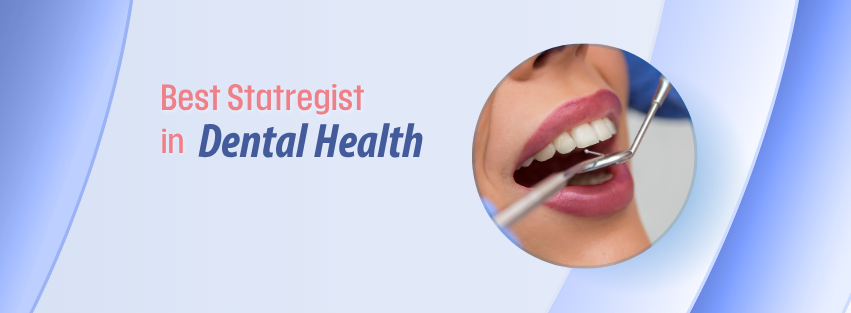
Foods that strengthen teeth and promote oral health:
Maintaining strong teeth is essential for overall oral health. The right foods play a key role in protecting your teeth and enhancing their strength. By including specific nutrients in your diet, you can help keep your teeth healthy and prevent dental issues. Let’s explore some of the best foods that contribute to stronger teeth.
Dairy products:
Milk, cheese, and yogurt are fantastic sources of calcium and phosphorus, both of which are crucial for teeth strength. Calcium helps fortify the enamel, the outer layer of your teeth, while phosphorus works to restore minerals lost due to acidic foods. Consider adding these dairy items to your daily diet:
- Milk
- Plain yogurt
- Hard cheeses like cheddar or gouda
Leafy greens:
Leafy greens such as spinach, kale, and collard greens are loaded with vitamins and minerals that boost oral health. They are rich in calcium, folic acid, and other essential nutrients. Plus, the high fiber content helps scrub your teeth, reducing plaque and promoting saliva production to combat acidity in your mouth.
Crunchy fruits and vegetables:
Fruits and vegetables like apples, carrots, and celery are not only low in calories but also promote good dental hygiene. The crunchiness of these foods results in a natural cleaning action for your teeth. Apples, in particular, help with saliva production, which neutralizes acids and keeps your mouth bacteria-free.
- Apples
- Carrots
- Celery
Omega-3 fatty acids:
Foods rich in omega-3 fatty acids, like salmon, chia seeds, and walnuts, are known for their anti-inflammatory properties. They can help protect gums from diseases and contribute to better overall oral health. these foods into your meals can enhance not just your gum health but also provide vital nutrients for stronger teeth.
Nuts and seeds:
Nuts and seeds are excellent for oral health. Almonds, sunflower seeds, and sesame seeds are high in calcium and phosphorus—and they are easy to snack on throughout the day. Moreover, they provide healthy fats that support overall well-being, making them a great addition to your diet.
Green tea:
Green tea has become quite popular, not just for its health benefits but also for its positive effects on oral health. Rich in antioxidants, particularly catechins, green tea can help reduce inflammation and bacteria in the mouth. This leads to lower plaque buildup and gum disease risk. Enjoy a cup of green tea to benefit your teeth and overall health.
Whole grains:
Opting for whole grains like brown rice, oatmeal, and whole grain bread is an excellent choice for dental health. These foods help maintain a balanced diet while providing fiber and essential nutrients. Whole grains have a low glycemic index, meaning they help maintain blood sugar levels, which ultimately benefits oral health by reducing the chances of tooth decay.
Limit sugary foods:
While focusing on foods that strengthen teeth, it’s equally important to limit sugary and acidic foods. Sweet treats and sugary drinks can lead to cavities and enamel erosion. Always try to balance your intake of these foods with healthier options that promote better oral health.
Importance of water:
Staying hydrated with water is essential for your oral health as well. Water helps wash away food particles and bacteria from your mouth. It also helps maintain saliva production, which is vital for neutralizing acids. Aim to drink plenty of water throughout the day to keep your mouth clean and promote stronger teeth.
These foods into your daily meals can significantly support your dental health. Make it a habit to consume a balanced diet that includes dairy, leafy greens, crunchy fruits, whole grains, and healthy fats. Remember, a healthy mouth starts with what you eat!
The role of calcium and phosphorus in dental health:
Your dental health relies on a variety of nutrients, but two of the most important minerals are calcium and phosphorus. These elements play vital roles in maintaining solid and healthy teeth. Understanding their benefits can help you make better food choices to strengthen your smile.
Calcium is essential for building and maintaining strong teeth and bones. It helps form the structure of your teeth and keeps them strong. When you don’t get enough calcium through your diet, the body begins to take calcium from your bones and teeth to maintain necessary levels. This can lead to weakened teeth and an increased risk of cavities.
Phosphorus also contributes significantly to dental health. It works closely with calcium to form the hard outer shell of your teeth, known as enamel. Enamel protects your teeth from decay, wear, and sensitivity. A proper balance of these two minerals is crucial for optimal dental health.
Including calcium and phosphorus-rich foods in your diet can support the health of your teeth. Here’s a list of some delicious options to consider:
- Dairy Products: Milk, cheese, and yogurt are excellent sources of both calcium and phosphorus. They not only provide minerals but also deliver proteins and fats that can help keep your teeth strong.
- Leafy Greens: Vegetables like kale, spinach, and broccoli aren’t just good for your overall health; they are also high in calcium. Adding these greens to your meals boosts your vitamin intake while promoting strong teeth.
- Fish: Fish like salmon and sardines are rich in phosphorus and also provide beneficial omega-3 fatty acids. These fatty acids can help reduce inflammation and support oral health.
- Nuts and Seeds: Almonds and sesame seeds are not only crunchy and tasty but are also packed with calcium and phosphorus. They make for a great snack, getting you closer to optimal dental health.
- Legumes: Beans and lentils provide a plant-based source of phosphorus and are a great addition to your diet. They can be included in salads, soups, or as a side dish.
Beyond food sources, consider how lifestyle choices also play a role in your dental health. Drinking plenty of water, especially fluoridated water, not only keeps you hydrated but also assists in washing away food particles and bacteria. It’s a simple yet effective way to promote a healthy mouth.
Another essential factor is maintaining good oral hygiene. While calcium and phosphorus help strengthen your teeth, they can’t do the job alone. Brushing at least twice a day and flossing daily can prevent plaque buildup and not allow decay to take hold, even if you consume plenty of these minerals. Regular dental check-ups are also crucial so that any potential issues can be caught early.
By focusing on a balanced diet rich in calcium and phosphorus, you’re giving your teeth the nutrients they need to thrive. Don’t forget that the effects of these minerals extend beyond just dental health. They are vital for your overall well-being, including heart health and muscle function.
To sum up, incorporating a variety of calcium and phosphorus-rich foods into your daily meals can significantly enhance your dental health. Eating diverse foods from every food group will not only benefit your teeth but will also keep you feeling great overall. Always be attentive to your body’s nutrition needs and complement that with healthy habits. With these steps, you can maintain a bright, strong smile for years to come!
How vitamin D affects tooth strength:
The health of your teeth is affected by many factors, and one vital nutrient is Vitamin D. It plays a crucial role in maintaining strong teeth and overall oral health. You might be wondering how exactly Vitamin D contributes to tooth strength and how you can ensure you’re getting enough of it.
Vitamin D helps your body absorb calcium, a mineral that is essential for building and maintaining strong teeth and bones. Without sufficient Vitamin D, your body struggles to absorb calcium effectively. This can lead to weaker teeth, increasing your risk of cavities and gum disease. Here, we will explore the various ways Vitamin D impacts your tooth health that you should know.
How vitamin D strengthens teeth:
Understanding the ways Vitamin D contributes to tooth strength will help you appreciate its importance:
- Enhances Calcium Absorption: Vitamin D acts as a hormone in your body, telling your intestines to absorb more calcium from the food you eat. This calcium helps your teeth stay strong and resistant to decay.
- Reduces Inflammation: Low levels of Vitamin D can lead to inflammation in your gums. Healthy gums are essential as they hold your teeth in place and protect them from bacteria.
- Supports Immune Function: A well-functioning immune system is crucial for fighting off infections in your mouth. Vitamin D can help boost your immune response, reducing your chances of gum disease.
- Bone Health: Vitamin D is also important for overall bone health. Strong jawbones provide a solid foundation for your teeth. Weak bones can lead to tooth loss over time.
Sources of vitamin D:
Now that you know how Vitamin D helps your teeth, let’s discuss where you can find it. Here are some natural sources of Vitamin D you can incorporate into your diet:
- Fatty Fish: Salmon, mackerel, and sardines are rich in Vitamin D and also provide healthy omega-3 fatty acids.
- Fortified Foods: Look for milk, orange juice, and cereals that are fortified with Vitamin D.
- Egg Yolks: Including whole eggs in your meals can give you a decent dose of this essential vitamin.
- Mushrooms: Certain mushrooms, especially when exposed to UV light, can be great sources of Vitamin D.
Additionally, sunlight is a powerful source of Vitamin D. When your skin is exposed to sunlight, it synthesizes Vitamin D. So, spending some time outdoors daily can also help boost your levels.
Recommended vitamin D intake:
Understanding how much Vitamin D you need is essential for dental health. The recommended daily allowance varies depending on your age and individual health needs:
- Infants (0-12 months): 400 IU (International Units)
- Children (1-18 years): 600 IU
- Adults (19-70 years): 600 IU
- Older Adults (70+ years): 800 IU
Consider speaking to your healthcare provider to determine the right amount for you, especially if you’re at risk of a deficiency.
Signs of vitamin D deficiency:
It’s important to be aware of the signs of Vitamin D deficiency, which can negatively impact your teeth and overall health. Symptoms may include:
- Frequent infections or illnesses
- Bone pain or muscle weakness
- Slow healing of wounds
- Gum disease or bleeding gums
If you experience any of these symptoms, it’s advisable to consult with a healthcare professional who can guide you on getting adequate Vitamin D.
Sufficient Vitamin D into your life is crucial for maintaining strong teeth and gums. Focus on a balanced diet incorporating natural sources of Vitamin D and getting some sunlight when possible. By doing so, you can significantly enhance your dental health and enjoy a brighter, healthier smile.
The impact of sugar on teeth and how to counteract it:
Your love for sugary snacks may seem harmless, but sugar can wreak havoc on your teeth. When you consume sugar, it creates a sugary environment in your mouth. Bacteria thrive in this environment, leading to plaque buildup, tooth decay, and even cavities. Understanding how sugar impacts your teeth and learning ways to counteract its effects can help you maintain a healthier smile.
When sugar enters your mouth, it doesn’t just dissolve; it invites harmful bacteria to the party. These bacteria feast on the sugar and produce acid as a byproduct. This acid can erode tooth enamel, the protective layer on your teeth. Over time, this erosion can lead to sensitive teeth and painful cavities. You might be surprised to know that even natural sugars, like those found in fruit, can be detrimental if consumed in excess.
How sugar affects your teeth:
- Acid Production: Sugary foods create the perfect environment for bacteria to produce acid. This acid attacks tooth enamel, which can lead to decay.
- Plaque Formation: After consuming sugar, bacteria mix with saliva and food debris to form plaque, a sticky film that continues to harm your teeth until removed.
- Cavity Development: If plaque isn’t cleaned off your teeth, it hardens into tartar, leading to cavities. These cavities can become painful and may require dental intervention.
- Gum Disease: Chronic sugar consumption can contribute to gum disease. Inflammation caused by bacteria can harm your gums, leading to serious oral health issues.
So, how can you enjoy your treats while also protecting your teeth? The strategy lies in moderation and maintaining good oral hygiene. Here are some effective ways to counteract the impact of sugar on your oral health:
Strategies to combat sugar’s effects:

- Regular Brushing: Brush your teeth twice a day with fluoride toothpaste. This helps to remove plaque and reinforce your enamel.
- Floss Daily: Flossing helps to remove food particles and plaque from between your teeth, areas that your toothbrush might miss.
- Choose Wisely: Opt for healthier snack options, such as nuts, cheese, or fresh vegetables. These foods can neutralize acids and promote healthy saliva production.
- Stay Hydrated: Drink plenty of water throughout the day. Water helps to wash away sugar and bacteria, reducing the risk of tooth decay.
- Cavity-Fighting Products: Use mouthwash or products that contain xylitol. Xylitol helps to reduce bacteria levels in your mouth and can combat cavity formation.
- Limit Sugary Drinks: Be mindful of sugary beverages like sodas and fruit juices. Try to choose water or unsweetened drinks whenever possible.
By implementing these practices, you can drastically reduce your risk of developing cavities and other dental problems caused by sugar. Remember, maintaining a routine is key! Consistency pays off when it comes to oral hygiene.
Signs of sugar damage:
Being proactive about your oral health can help you avoid many common problems. However, it’s wise to be aware of the signs that sugar might be impacting your teeth. Look out for these symptoms:
- Sensitivity: If you experience pain when consuming hot, cold, or sweet foods, your teeth may be suffering from enamel erosion.
- Discoloration: Dark spots on your teeth can indicate decay or cavities. It’s essential to consult your dentist if you notice these changes.
- Frequent Cavities: Regular visits to the dentist will help you keep tabs on your oral health. If you find yourself getting cavities frequently, it might be time to assess your sugar intake.
Understanding and managing your sugar consumption can significantly affect your dental health. By adopting good oral hygiene practices and moderating sugar intake, you empower yourself to protect your teeth and enjoy a healthier smile.
Remember, it’s not just about avoiding sweets; it’s about making informed choices that support your overall health!
Conclusions:
Maintaining strong teeth goes beyond regular brushing and dental visits; it involves making smart dietary choices that support oral health. foods rich in calcium and phosphorus, like dairy products and leafy greens, plays a crucial role in strengthening your enamel and fostering a healthy oral environment. These minerals work synergistically to ensure that your teeth remain robust and resistant to decay.
Natural remedies can further enhance your oral health. Ingredients like green tea and crunchy vegetables help fortify your teeth while fresh herbs can provide antibacterial properties.
By focusing on a balanced diet filled with nutrient-rich foods, you empower your teeth to stay strong and healthy. Making these conscious dietary choices not only promotes better dental health but also contributes to your overall well-being. Prioritize your oral health today by embracing delicious and tooth-friendly foods!
